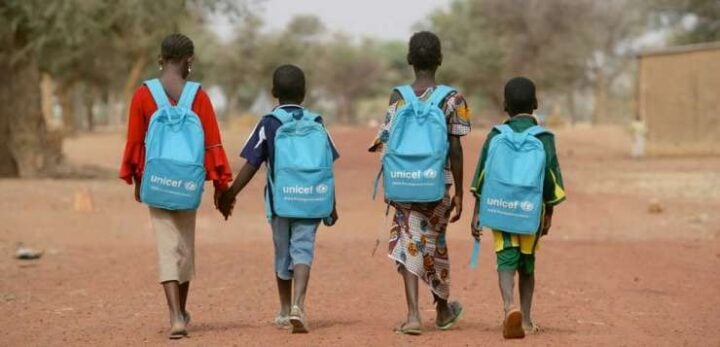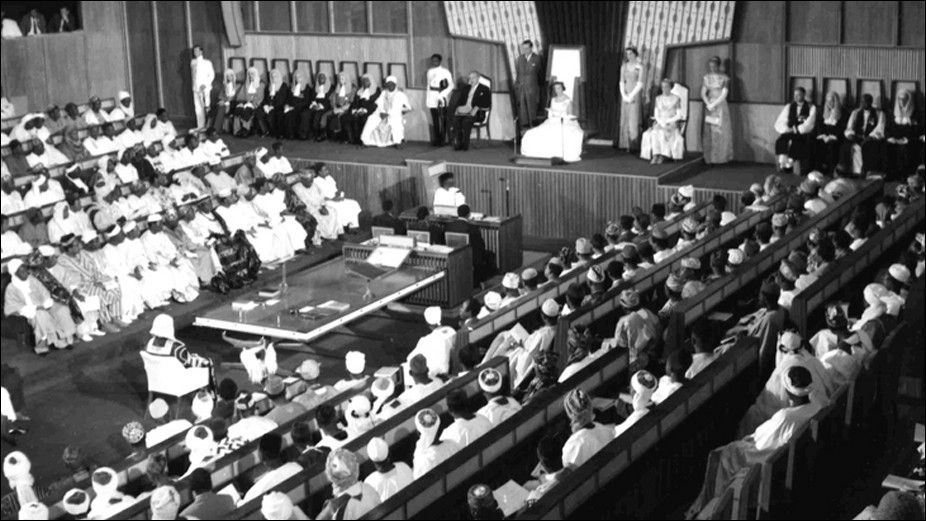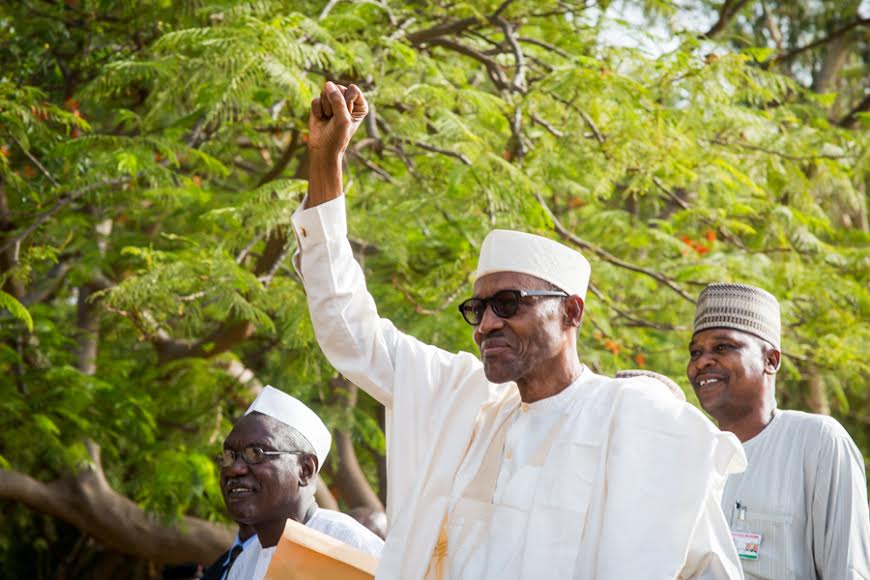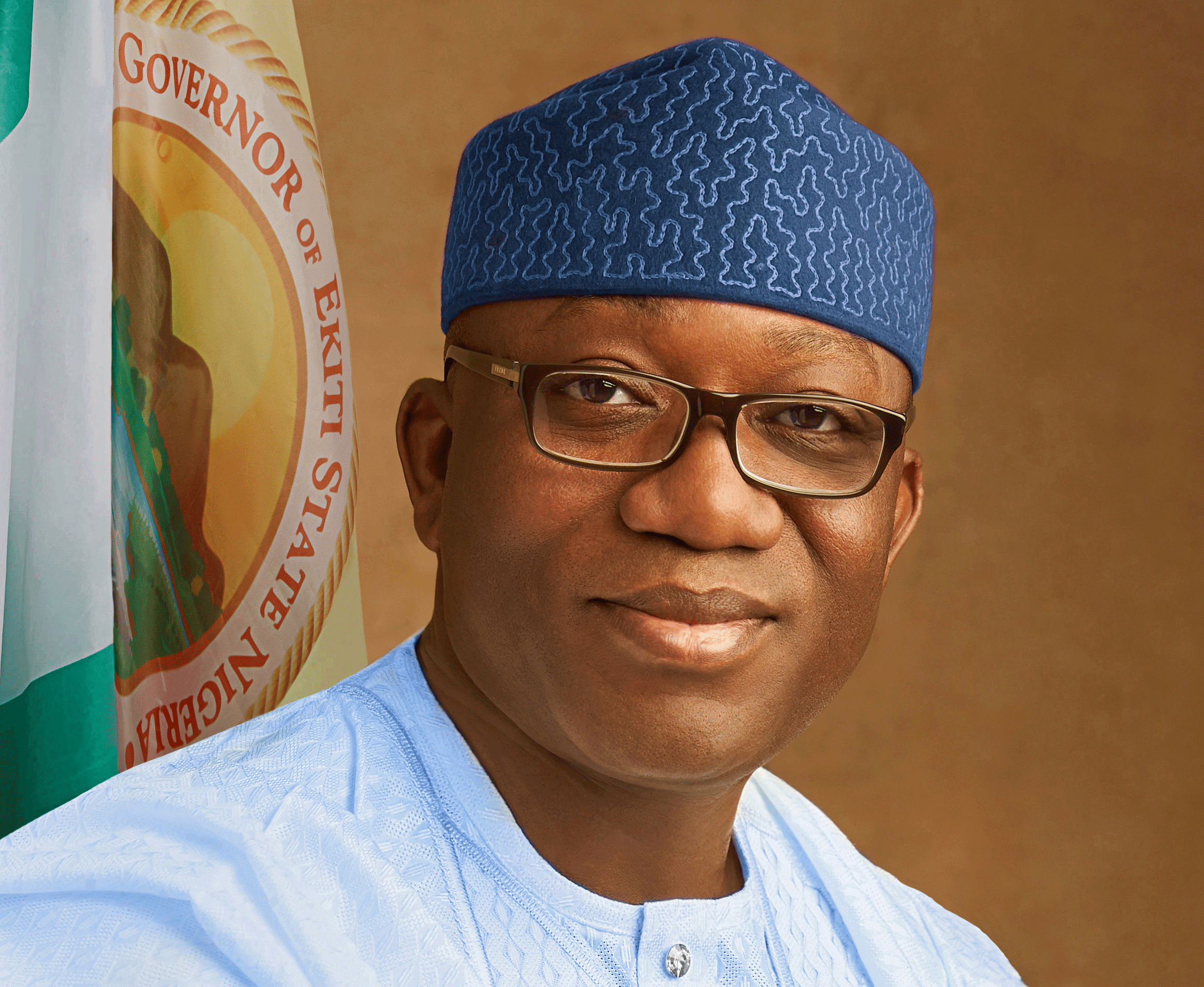Apart from the booming of bombs and painful cries at the Northeast theatre of the Boko Haram war that the world has been accustomed to since the war of terror berthed on the Nigerian soil, another booming, shocking and destabilizing bomb exploded at the war front on Friday. This time, it reverberated beyond the theatre of war, across the length and breadth of the world. A terse press statement signed by Onyema Nwachukwu, a colonel and Deputy Director of Public Relations, on behalf of the Theatre Command of the Operation Lafiya Dole, had ordered the world-acclaimed United Nations International Children’s Emergency Fund (UNICEF) out of the precinct of war.
Its reason for this was a very weighty allegation that UNICEF was aiding the insurgents by training spies who had affinity with the dreaded militia. Seismic an allegation, no doubt, Operation Lafiya Dole Commandant further alleged, in concrete terms, that the Nigerian Army had credible information that UNICEF was “playing the terrorists’ scripts” by engaging in acts that are “unwholesome practices that could further jeopardise the fight against terrorism and insurgency as they train and deploy spies who support the insurgents and their sympathisers.” Proceeding on this path, the Army also alleged that UNICEF “tend(s) to benefit more from expanding the reign of terror on our people.” The training of spies, the Commandant alleged, was sequel to information within the reach of the Command which “specifically indicates that the organisation commenced the said training on Wednesday 12 December 2018 at the Ministry of Finance Conference Hall, Musa Usman Secretariat, Maiduguri and ended on 13 Thursday December 2018.”
The Army’s statement immediately courted diatribes across the globe. International human rights organisation, Amnesty International, said it was an attempt to demonize the humanitarian agency and intimidate it from carrying out its globally recognised assignment, while tagging the allegations against the body as absurd. On the effect of this ostensibly depthless decision, Amnesty said it “will, in fact, deprive those whose lives have been devastated by the Boko Haram conflict from receiving much-needed humanitarian assistance.” However, the Commander shortly reversed its order, basing it on “intervention by well-meaning and concerned Nigerians” and that it had “convened and held an emergency meeting with representatives of UNICEF” on Friday evening. The Presidency had before this apparently spineless about-turn, through Garba Shehu, in an apparent attempt to thaw the audacious ice of this order, said a meeting was afoot to mend fences between UNICEF and the Nigerian Army.
For a patriotic Nigerian who subscribes to the Walter Rodney thesis of how Europe underdeveloped Africa and any student of Claude Ake who over the years gobbled the late scholar’s theories of how developmental problems in Africa were sustained by powerful global interests, especially in his thesis that “power is everything and those who control the coercive resources use it freely to promote their interests,” there would be a patriotic urge to offer Nwachukwu and his Commander a bottle of cold beer for their unqualified patriotism. However, the issues involved in these very weighty allegations, the peremptory ordering of UNICEF out of this theatre of war, vis a vis the very delicate nature of Nigeria’s position on the global radar, far outweigh all these. In fact, the reversal of the order by the military notwithstanding, the cause for the order and the mind-set behind it are in need of urgent prognosis for the sanity of our nation and the future of Nigeria’s international relations.
Advertisement
For a brief tie-back, UNICEF has acquired an impregnable acclaim across the world as a global humanitarian agency which these queer allegations certainly cannot impeach. Established by the United Nations General Assembly on December 11, 1946 with the brief to provide emergency food and healthcare to children in countries that had been devastated by World War II, it has since expanded its forte beyond that war. Its strength is in field works and it has since established its presence in 190 countries and territories, with a network in over 150 country offices. Its major concentration is on averting the soaring infant mortality in the world and the North-eastern part of Nigeria where the insurgency has rendered multiple of thousands of children homeless is its area of interest. In Borno State alone, Governor Kashim Shettima recently told the AFP that the state had “an official number of over 52,000 orphans” but unofficial figures claim that the orphans may number over 100,000. The number of out-of-school children even far outweighs this and it is reasoned that, without education, it is easy for these orphans to be indoctrinated with the Boko Haram ideology. This, no doubt, has been UNICEF main attraction
Queer as the Lafiya Dole commandant’s allegation may sound, a patriot may want to give him the benefit of the doubt. What exactly is the composition of the Nigeria Army’s alleged security information about UNICEF? Upon what premises did it base this decision to expel the globally acknowledged humanitarian agency? Does logic justify this allegation? Placed side by side Afrocentric concoctions native to us which reason fabulously that the west gangs up against Africa’s development, based on an alleged projection that a developed Africa could threaten the west’s neo-colonial aspirations, there is the probability that this thesis may fructify in the minds of Nigerians, in support of the Army’s expulsion. On remembrance of Nigeria’s security forces’ penchant for acting abysmally contradictorily to the norms that sane and reasonable organizations, as well as nations are used to, there may be the need to tarry awhile before applauding this move which ordinarily looks skewed and less than sensible.
Many of the humanitarian agencies operating in Nigeria had earlier taken up cudgels against the activities of the Nigerian Army in this fight against insurgents. For example, in a report it entitled They betrayed us, Amnesty International had alleged that girls fleeing the insurgents were being raped by Nigerian soldiers, starved and were coerced to exchange food for sex. Thousands of these women are reported to have lost their lives in their quest for survival in the so-called Internally Displaced People’s Camps where the Nigerian federal and state governments claim to be funding with billions of Naira. The report further claimed that the Civilian Task Force (Civilian JTF) “separated women from their husbands and confined them in remote ‘satellite camps’ where they were raped, sometimes in exchange for food.” If you recall the atrocities of the Nigerian Army in Odi and Zaki Biam, you will not put past Nigerian soldiers the tendency to act like a recount of Joseph Conrad’s Heart of Darkness. Conrad’s book, a narration of a voyage up the Congo River into the Congo Free State, is woven across a central theme of the submission that little difference exists between so-called civilised people and savages.
Advertisement
Only recently, Amnesty, in another report on Nigerian soldiers in the war against insurgency in the Northeast, covertly alleged that savages exist among them. According to the report, Nigerian soldiers were engaged in war crimes which ranged from atrocious execution of civilians and people it peremptorily tagged associates of the insurgents. Indeed, in the report, Amnesty claimed that “the Nigerian military, including senior commanders, must be investigated for the deaths of more than 8,000 people murdered, starved, suffocated, and tortured to death.” Amnesty claimed that its findings, which it said were based on years of research and evidence on these atrocities, included “leaked military reports and interviews with more than 400 survivors, eyewitnesses and senior members of the Nigerian security forces” as well as viewing and verification of “90 videos showing Nigeria military and allied militia in the act of committing human rights abuses.” It ended the report by saying that it had “specifically named the high-ranking military officials who should be investigated for the war crimes of murder, torture and enforced disappearance.” With this as a background, it would be whimsical to expect the Nigerian military to view the activities of the humanitarian agencies as complimentary.
For us as Nigerians, the diffident ordering of UNICEF out of the war-torn area in the Northeast can only be a throwback to a similar order and disdain for the rest of the world by General Sani Abacha. Abacha, you will recall, ran a government that disdained the world. Accused of gross human rights abuses which reverberated across the world, especially after he ordered the hanging of Ogoni activist, Ken Saro-Wiwa, ostensibly as a result of the tobacco-pipe-mouthing writer’s unqualified opposition to the exploitation of oil and the attendant despoliation of the environment by multinational oil companies, among others, the Abacha government became repeatedly condemned by the US State Department. Its attempt to court Americans like Louis Farhakan, Jesse Jackson notwithstanding, as well as his strong support for the Economic Community of West African States by sending Nigerian troops to Sierra Leone to fight the needless war in the tiny African country, Abacha was hated across the globe and Nigeria became a pariah in international reckoning. Thus, the question to ask is, was Nigeria ready for the angst of the world again by its expulsion of UNICEF or the Army Commandant was too illiterate about the purport of such explosive action which has gross international proportion? Did he get the buy-in of President Muhammadu Buhari in this order or was it just one of those off-keyed military actions taken at the thick of frustration? Was it as a result of a sudden loss of mental direction, a momentary skew occasioned by the pressure of war?
From whatever prism it is looked at, there is no lafiya in this order by the Theatre Command of the Operation Lafiya Doleto expel UNICEF from the Northeast and there is an apparent chaos in the thought process of whoever incubated such a senseless command. Lafiya is a Hausa word denoting peace. The Nigerian Army itself has been grossly derelict in providing succour for children of its officers and men killed by these dreaded insurgents, a brief within the responsibilities of UNICEF. It is apparent that because there is no camera beamed on its actions by local Nigerian journalists, the Nigeria Army is uncomfortable with global searchlight beamed on its atrocious actions on helpless civilians, in the name of fighting the war. It apparently fears that the information the world gets on its gross human rights abuses were supplied by UNICEF and its allied group. Nigeria stands to suffer immensely from this action of ordering a respected body like UNICEF out of Nigeria and harangue of Amnesty International. What that means is that the world would continue to look at us as some alien country where there is dissonance between the brain and the brawn.
Why does Akeredolu hate Akure people?
Borrowing from the lingo of legal practitioners, there is the need to confess, ab initio a caveat emptor attached to this piece. It is my acquaintance with the governor of Ondo State, Mr. Rotimi Akeredolu and access to him to ventilate this view that is ten-a-dime on the streets of the capital of the state. It is said that the governor hates Akure people.While some say wide broadcast of Akeredolu’s perceived hatred of the people is the natural manifestation of Akure people’s ancestral label as those who knowingly abandon the piercing blade of their swords but nevertheless pierce their opponent with the penetrating cudgel of their damaging tongues, this claim of their governor’s hatred for them is resident on every tongue in Akureland at the moment. However, since the trending view transcends personal relationship and is metastasising fast in the hearts of the people daily, there is the need to subject it to the dissection of a commentator’s scalpel so that the world could be the unbiased umpire.
Advertisement
Even though the perceived disdain of Governor Akeredolu for the people of Akure sounds very implausible since a governor is voted in to develop and nurture the progress of every part of the state, Akure submit statistically evident reasons to back up this very dangerous allegation. Before the election that ushered the highly respected lawyer into office, he was quoted to have waved off Akure’s aspiration to have her own son govern the state for the first time since its founding. Derisively, Akeredolu was quoted to have said that the town, which was a Division in the old Western Region, was a hub of several ethnic groups in the state and could not boast of the homogeneity it canvassed as the forte of its aspiration. Hurt by this very diffident and dismissive overview but eventually betrayed by the grovelling inclinations of her politician children who make up the hub of the governor-to-be’s political clientele, Akeredolu literally became a seer in his pre-election analysis as he won elections even in the local governments that make up the ancient town.
Very soon, the SAN would be two years in office and the allegation is that he has also followed in the ignoble path of Olusegun Mimiko in hyper clannish devotion to his town, as against a holistic development of the state. For instance, while the governor’s hometown of Owo has allegedly received frenetic developmental strides, Akure is said to have maintained its static path and passable mention in the course of development. The horrible roads that lead to the state capital are said to be testimonies of this neglect.
Perhaps the most fundamental evidence of the people’s allegation against their governor is the ongoing brickbats over the plan by government to convert the state’s specialist hospital located in Akure into an annex of the University of Medical Sciences Teaching Hospital, Ondo. Last week, a ricochet of protests sparked off in Akure against this plan. The Deji of Akure kingdom, Oba Aladelusi Oguntoyinbo, after deafening harangue by his people, had to be at the Ondo State House of Assembly, venue of the sitting in preparation for the passage of the bill.
Akeredolu is proposing the bill that would make the Specialist Hospital and Mother and Child Hospitals in Akure and Ondo annexes of the University of Medical Sciences Teaching Hospital, Ondo, (UNIMED). Also ancillary to the bill is a proposal by the governor to transfer the 42-year old School of Nursing, Akure to UNIMED in the next three years. Thus, the school, which is one of Akure’s heritages, would be ceded to Ondo as part of Akeredolu’s indecipherable policy. Apart from the argument of the people that the only consequential government establishment was being taken away from them by the annexation of the hospital, they argue that Akeredolu’s move is an affront on norm and order. There is scarcely any state capital in Nigeria where state teaching hospitals are not domiciled; the only exception being Akure. More fundamentally, the logic of government in taking this decision appears baffling and vexatious. If the proffer of Akeredolu himself before becoming governor is to be taken in in its entirety, how come a state capital that is the agglutination of all people of the state, where a tertiary hospital would benefit the greatest number of the people, would be taken away from them and pronged at a place far less in population and where it would pose grave inconvenience to access by the huge number of people resident in the state capital?
Advertisement
The grouse of the people is why Akure should be administratively subservient to the proposed hospital in Ondo, especially considering its implications for resource allocation, staffing and scaling of facilities offered in the hospital. The people claimed that it is pure sophistry to suggest that both hospitals will be of the same status as equipment, top consultants and others would be concentrated in Ondo and resource allocations would be in a place that is not the capital. Akure people are also requesting that in the event that government sticks to its guns, could the Akure State Specialist Hospital be considered for release to the Federal University of Technology, Akure (FUTA) as a starting centre for her Teaching Hospital, a proposal that the bearded governor has shuddered from looking in its direction.
It is the people of Akure’s submission that making the State Hospital an annexe to the proposed hospital in Ondo is a continuation of Akeredolu and his predecessor’s disdain for Akure people. The people cannot understand why he wants to take the School of Nursing, which is Akure’s only state-owned institution, away from it, all in the name of this dream of his. This has given the people an opportunity to wager a guess verging on alleged clannishness of the governor: If Akure’s School of Nursing is ceded to Ondo, it will no longer be there to serve FUTA’s medical school and thus, the Federal Medical Centre, Owo would be a readily available hospital for its usage for clinicals. Right now, except for the fripperies erected therein by Mimiko, Akure, in all material particular, lacks the basic glitter of a state capital. It boasts of nearly nil persons on secondment to the federal government by the state and is merely surviving on the old glory of its ancient renown. Akeredolu can show the people the depth of his love by making an about-turn from this UNIMED path that is courting him the enmity of the people who voted for him.
Advertisement
Views expressed by contributors are strictly personal and not of TheCable.
Add a comment







